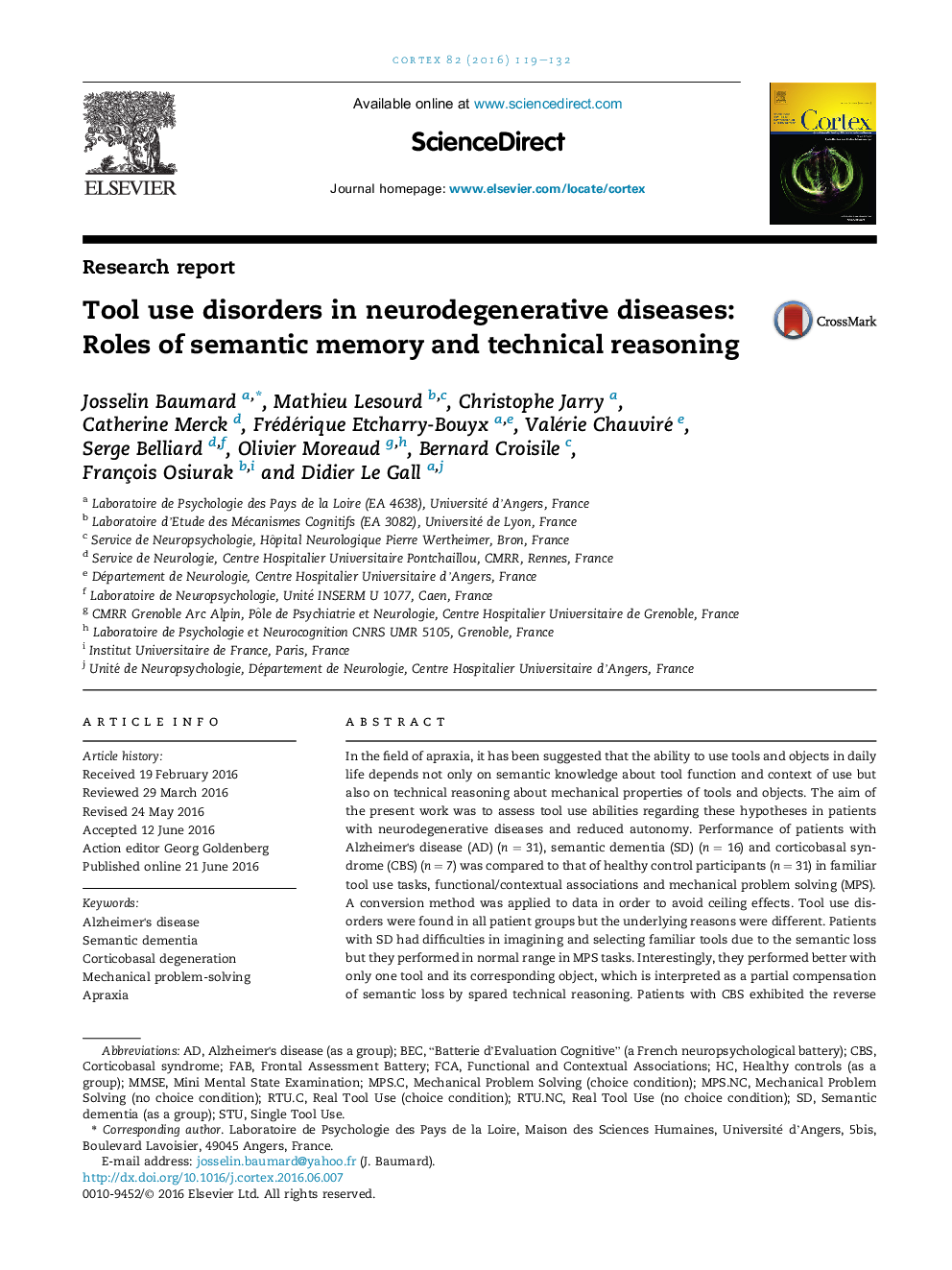| Article ID | Journal | Published Year | Pages | File Type |
|---|---|---|---|---|
| 7312563 | Cortex | 2016 | 14 Pages |
Abstract
In the field of apraxia, it has been suggested that the ability to use tools and objects in daily life depends not only on semantic knowledge about tool function and context of use but also on technical reasoning about mechanical properties of tools and objects. The aim of the present work was to assess tool use abilities regarding these hypotheses in patients with neurodegenerative diseases and reduced autonomy. Performance of patients with Alzheimer's disease (AD) (n = 31), semantic dementia (SD) (n = 16) and corticobasal syndrome (CBS) (n = 7) was compared to that of healthy control participants (n = 31) in familiar tool use tasks, functional/contextual associations and mechanical problem solving (MPS). A conversion method was applied to data in order to avoid ceiling effects. Tool use disorders were found in all patient groups but the underlying reasons were different. Patients with SD had difficulties in imagining and selecting familiar tools due to the semantic loss but they performed in normal range in MPS tasks. Interestingly, they performed better with only one tool and its corresponding object, which is interpreted as a partial compensation of semantic loss by spared technical reasoning. Patients with CBS exhibited the reverse pattern, that is, MPS deficits without semantic loss. However, additional qualitative research is needed to disentangle the relative contributions of motor and technical reasoning deficits to this pattern. Both of these profiles were found in patients with AD. For all that, these patients did not commit the same errors as stroke patients with left brain-damage documented in previous works. Several hypotheses are proposed to account for the specificity of tool use disorders in neurodegenerative diseases, and recommendations are provided to caregivers.
Keywords
Related Topics
Life Sciences
Neuroscience
Behavioral Neuroscience
Authors
Josselin Baumard, Mathieu Lesourd, Christophe Jarry, Catherine Merck, Frédérique Etcharry-Bouyx, Valérie Chauviré, Serge Belliard, Olivier Moreaud, Bernard Croisile, François Osiurak, Didier Le Gall,
